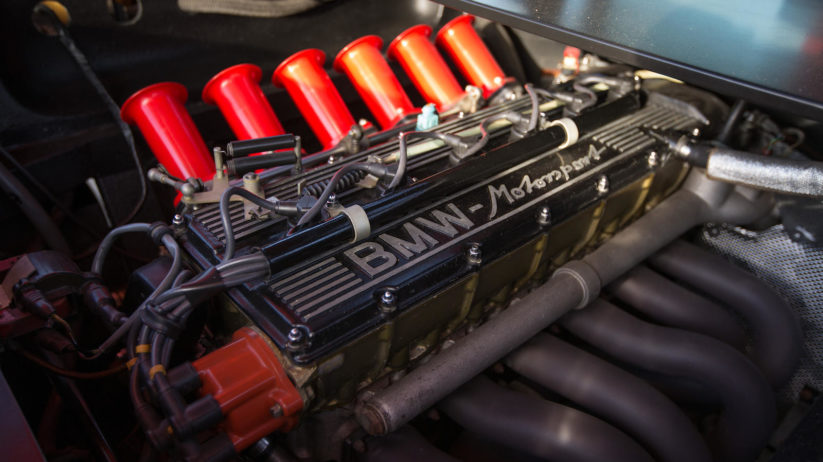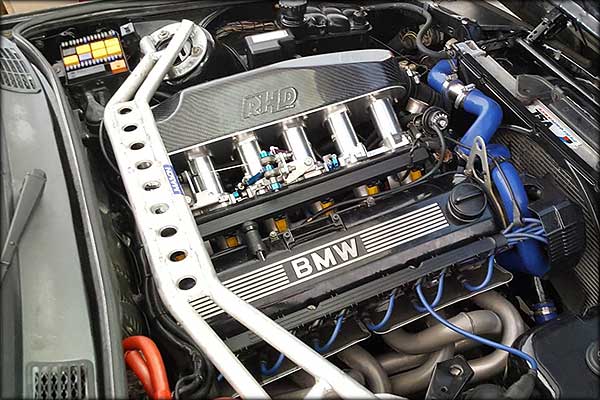The Evolution of the BMW Engine: A Recall at Iconic Models
Wiki Article
Revealing the Intricacies of Next-Generation Power Units: a Deep Study Advanced Engine Technologies and layouts
In the world of auto design, the unrelenting pursuit of sustainability, effectiveness, and performance has actually propelled the evolution of power devices to extraordinary elevations. As we depend on the precipice of a brand-new age in transportation, the complexities of next-generation engine styles bid us to check out the innovative modern technologies and technologies that assure to redefine the driving experience. From innovative materials that push the borders of resilience and weight reduction to sophisticated turbocharging and turbo charging systems that raise power output to brand-new levels, each component of these power devices holds a vital to unlocking the future of vehicle engineering. Diving much deeper into the worlds of discharge control, intelligent engine monitoring systems, and the perspective of power system development, we discover ourselves on the cusp of a change that assures to reshape the landscape of movement as we know it.Evolution of Engine Products

The shift towards progressed engine products has actually additionally enabled designers to design engines with higher power outcomes while preserving gas effectiveness requirements. For instance, making use of light-weight products reduces the overall weight of the engine, bring about improved fuel economic climate and lower discharges. In addition, advancements in materials modern technology have allowed for better thermal management within engines, causing raised reliability and durability.
Turbocharging and Supercharging Technologies
Just How do Turbocharging and Supercharging Technologies reinvent engine performance and effectiveness in contemporary vehicles? Turbo charging and turbocharging are technologies that significantly improve engine performance by enhancing the quantity of air consumption into the burning chamber. Turbocharging attains this by using a wind turbine driven by exhaust gases to pressurize the intake air, while supercharging utilizes a belt- or chain-driven compressor to attain the very same result.
These modern technologies enable smaller, extra fuel-efficient engines to generate power equivalent to bigger ones, called downsizing. By forcing even more air into the cylinders, turbocharging and supercharging enhance combustion performance, resulting in increased horsepower and torque output without a significant boost in engine dimension. This results in far better acceleration, towing capacity, and general driving efficiency.
Moreover, supercharging and turbocharging contribute to enhanced fuel effectiveness by allowing the usage of smaller sized engines that eat much less gas under typical driving problems - bmw engine. This mix of enhanced performance and performance has made turbocharging and supercharging indispensable parts of several modern-day engine designs
Exhaust Control and Environmental Effect
With boosting international problems relating to air quality and ecological sustainability, the implementation of emission control innovations in automobiles plays an important function in decreasing harmful toxins released into the ambience. Modern lorries are equipped with advanced exhaust control systems that assist decrease the environmental influence of automotive operations. Catalytic converters, for example, are designed to convert poisonous gases such as carbon monoxide gas, nitrogen oxides, and hydrocarbons into much less dangerous materials like carbon dioxide and water vapor.Furthermore, advancements in engine technology, such as the integration of exhaust gas recirculation systems and selective Discover More catalytic reduction, have actually substantially added to reducing emissions. These technologies operate in tandem to maximize burning effectiveness and lessen the release of hazardous pollutants right into the air. Furthermore, the development of hybrid and electrical automobiles represents a vital action towards decreasing the overall ecological footprint of the transportation field.
Intelligent Engine Administration Solution

In addition, these systems make it possible for automobiles to fulfill rigid exhausts criteria without compromising performance, giving a much more eco-friendly driving experience. The integration of synthetic intelligence and artificial intelligence capacities in engine management systems remains to push the borders of what is possible, causing further enhancements in performance, dependability, and general vehicle performance. bmw engine. As auto technology developments, smart engine management systems will play an essential function in forming the future of transportation towards an extra reliable and sustainable instructions
Future Trends in Power Device Advancement
As smart engine administration systems lead the way for improved control and optimization in modern-day vehicles, future trends in power system development are poised to redefine the landscape of vehicle propulsion modern technologies. Among the key trends driving advancement in power unit development is the shift towards electrification. With an enhancing emphasis on sustainability and lowering carbon exhausts, hybrid and electric powertrains are ending up being much more common in the automotive industry. These alternative source of power provide enhanced effectiveness and performance while lining up with strict environmental guidelines.Another significant pattern is the assimilation of sophisticated materials and Go Here manufacturing strategies. Light-weight materials such as carbon fiber and light weight aluminum are being used to minimize overall vehicle weight, boosting gas effectiveness and efficiency. In addition, advancements in 3D printing and additive production are allowing the production of intricate engine elements with higher precision and resilience.
Furthermore, expert system and machine discovering are playing a crucial role in maximizing power system efficiency. These innovations enable real-time monitoring and adaptive control, leading to more trustworthy and efficient power distribution. In general, future patterns in power unit growth are geared in the direction of sustainability, effectiveness, and efficiency, driving the vehicle industry towards a new period of propulsion technologies.

Final Thought
In final thought, the advancements in engine products, turbocharging, emission control, and smart management systems have actually led the way for next-generation power units. The complex designs and innovations in contemporary engines showcase the continuous advancement of auto technology.Checking out the modern improvements in engine products has actually been crucial in enhancing the performance and effectiveness of contemporary engines. Over the years, the development of engine products has actually played a crucial role in pushing the limits of what engines can accomplish.The shift towards advanced engine products has actually additionally enabled engineers to design engines with higher power results while keeping gas performance standards.The execution of smart engine monitoring systems in modern-day vehicles has actually revolutionized the way engines are managed and enhanced for performance and efficiency. By collecting data in real-time and examining it with sophisticated algorithms, intelligent engine monitoring systems can adjust to driving designs, environmental aspects, and get more engine wellness to take full advantage of power output while minimizing fuel usage and emissions.
Report this wiki page